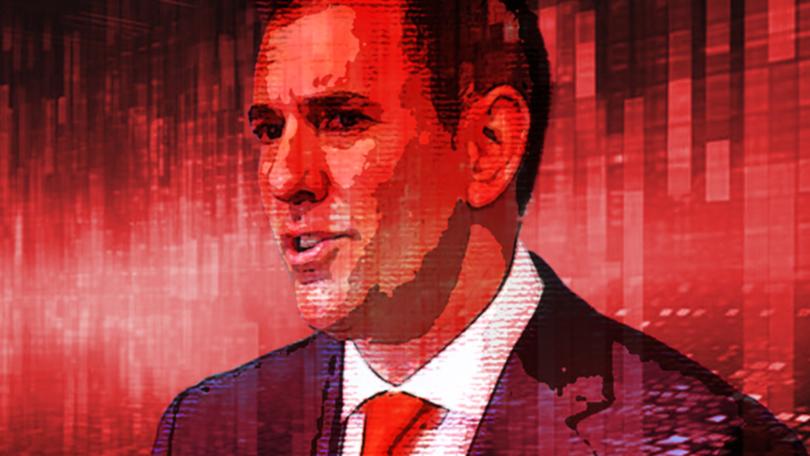International Monetary Fund recommends further interest rate rises and home loan hurdles to beat inflation
Treasurer Jim Chalmers was at pains to highlight the positives in the IMF’s country report on Australia, despite the respected economic group’s calls to get even tougher with embattled borrowers.

More interest rate hikes will be needed this year in Australia, one of the world’s most influential economic and financial organisations says, with inflation expected to take longer than first thought to get back to where the Reserve Bank wants it.
Home borrowers should face tougher hurdles to get a loan as a way to address rampant property price growth, the International Monetary Fund has recommended.
It has also suggested interest rates will need to rise further given the inflation rate will not fall into the RBA’s target until 2026 — later than expected.
Sign up to The Nightly's newsletters.
Get the first look at the digital newspaper, curated daily stories and breaking headlines delivered to your inbox.
By continuing you agree to our Terms and Privacy Policy.“Monetary policy should be tightened further to ensure inflation comes back to target earlier than 2026,” the report states, dashing hopes of many economists and money markets for rate cuts as early as July.
The State and Federal Government’s coffers are poised for a major lift if the International Monetary Fund’s latest projections for the iron ore price materialise, with expectations it will not dip below $US100/t before 2028.
The IMF’s latest country report on Australia, released on Friday, also calls on the Federal Government to widely reform the tax system — and for all Governments to slow the pace of public infrastructure works to help bring the inflation rate lower.
Overall the national economy gets a largely positive reception from the IMF — the major financial agency of the United Nations — which suggests risks to Australia’s growth outlook are balanced and financial stability risks contained. That’s despite pockets of vulnerability due to high housing costs — both from high interest rates and rents — and increasing risks coming from global financial conditions.
Treasurer Jim Chalmers said it was also clear from the report that Australia was doing “much better” than other countries in returning the Federal Budget to a positive position.
But the IMF has made several recommendations, including for what it calls “borrower-based prudential tools” — which are loan-to-value, loan-to-income and debt service-to-income ratios that lenders use in assessing mortgage applications. In Australia these are largely set by the Australian Prudential Regulation Authority and then applied by the big banks and other lenders.
The IMF says tougher criteria could help to address “renewed increases” in house prices, which are exacerbating the growing housing affordability crisis. Australia’s home values overall increased 8.1 per cent last year, according to researchers CoreLogic, and by 15.2 per cent in Perth.
APRA currently requires a loan serviceability buffer of 3 percentage points above the interest rate.
The IMF also supported Federal and State Government initiatives to boost housing supply as a way of improving affordability — but also reinforced the critical need for better planning and land-use policies.
The IMF projects iron ore prices will slide from $US161/t to $US105/t by 2028 — generating a further royalties boom for State and Federal Budgets given, if realised, prices such as that are far above their conservative estimates for the price of the steelmaking input.
Elsewhere, the Federal Government has again been challenged to overhaul the tax system. The personal tax take has been growing as more people enter the workforce and bracket creep — where inflation pushes people into higher tax brackets — affects a greater proportion of people. The rapid increase in income tax has helped to improve the Federal Budget’s bottom line, along with much higher than forecast iron ore prices.
“Directors saw merit in a comprehensive tax reform and highlighted that rebalancing the tax system from direct to indirect taxes, while addressing regressive impacts, would promote greater efficiency,” the IMF said.
It has also suggested public investment and infrastructure projects be pursued “at a more measured pace” to support efforts to bring inflation lower. The Victorian and NSW Governments particularly have been in the firing line over a huge infrastructure program that is also increasing the size of their budget deficits.
The IMF also said further work was needed to reignite productivity growth, which has been falling consistently. Dr Chalmers recently appointed noted economist Danielle Wood to lead the Productivity Commission to overhaul its work and refocus it on productivity challenges in a new economic environment.
The IMF also expects it will be “challenging” for Australia to meet its 2030 climate targets, and have encouraged governments to look at additional efforts to hit net zero emissions by 2050.
Dr Chalmers welcomed the IMF joining “the chorus of voices” that supported the Federal Government’s responsible economic management.
“Ours is a textbook combination of cost of living relief, budget repair, and investments in a stronger more modern economy,” he said.
“The IMF backs our fiscal strategy, which has seen us already deliver the first surplus in 15 years and with a second in prospect.”
The Treasurer again acknowledged a litany of economic challenges including high but weakening inflation, higher rates and natural disasters, but said the IMF report confirmed Australia’s genuine economic strength.
“While inflation is still a defining challenge, we are making encouraging progress,” he said.
“Over 700,000 jobs have been created on the government’s watch, wages are growing at their fastest pace in nearly 15 years, and the budget is in much better nick because of our efforts.”
